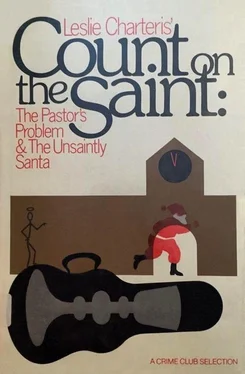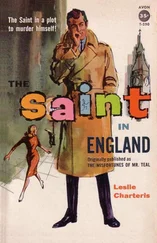Grantchester lies just three miles from Cambridge but it was more than half an hour before the church tower came into view. He stopped outside the rectory in the main street and consulted his Ordnance Survey map. Blansdown Court, the country seat of Lord Grantchester, lay three miles farther on into the snow carpeted countryside.
The holdups, although annoying, did give him time to marshal his thoughts.
He was playing a hunch, no more than that. Dr. Burridge had not been around that morning so the questions Simon wanted answers to had remained unasked. And as for Godfrey Nyall, his suspicion was based on only one foundation. Chantek’s playing with her knife had jogged his memory and made him recall the picture he had seen in the bursar’s study. The lack of identifications that had puzzled him were explained. That had been one of the rules of jungle warfare. Small groups working behind enemy lines, against the Japanese in Burma, had worn no badges of rank so that if captured the officers would not be identified. And they knew how to use a knife and were trained in unarmed combat to deliver the sort of blow that had felled Casden’s watchman. But its feasibility alone was not enough. Burridge’s fanatical conservatism was at least a motive of sorts. But outwardly Nyall appeared to have no reason to use any skills he might remember from his army service. Unless the Saint’s other guess was correct. Perhaps Lord Grantchester could suggest the necessary link. But then, there was no real certainty that he was next in line for a requiem. And even if he was, that didn’t mean that the danger was immediate. Reason told Simon that he could well be wasting his time; instinct told him to hurry. He pressed on.
Blansdown Court was as impressive a stately home as any day tripper in search of historical variety could have asked for. It rose from the flat Cambridgeshire farmlands in the centre of a spacious park surrounded on all sides by a crumbling grey brick wall. It was shaped like an E with out the centre bar. The stem of the E was graceful white Georgian with an ornate portico reached by double flights of steps which met in front of it. The east wing, though trying to blend with the central block, appeared to have been built a century later. The west wing was the original Elizabethan manor house, its small red bricks fitted around angled beams as stout as ships’ timbers, its tall chimneys leaning where the roof had sagged. The gateway was mid-Victorian Gothic. The tall iron gates were open. There were no signs of life in the lodges on either side.
The Saint drove through, followed the winding drive up to the house, and parked at the end of a row of half a dozen cars near the main steps.
His ring was answered by an elderly butler. Simon voiced his wish to see Lord Grantchester. No, he was not expected. The butler showed him into a small waiting room, enquired his name, and told him to wait while he checked with his lordship. He shuffled off across the cavernous high-domed hall and Simon followed soundlessly in his wake. He had no intention of hanging around only to be told that his lordship was not available.
The butler entered a room in a corridor leading from the hall. He delivered his message.
A voice said gruffly: “What does he want?”
“A few words,” answered the Saint, walking in as if on cue.
He found himself in a pleasantly comfortable drawing room. Logs blazed in the Adam fireplace and in front of it four people were finishing their afternoon tea. The two eldest were obviously Lord and Lady Grantchester. The younger two looked as if they might be their son and daughter-in-law or vice versa.
“Excuse my abruptness, sir,” said the Saint. “But the matter I have to discuss with you is very urgent.”
His lordship peered at his visitor from beneath bushy white eyebrows that matched his thick white moustache. Simon placed him at around seventy, yet despite his age there was a certain strength and alertness about him. He sat waiting for an explanation, and Simon realised that his surname alone might not have been quite sufficient.
“My name is Simon Templar. You may have heard of me. I’m sometimes called the Saint.”
The gathering had indeed heard of him as their expressions revealed. The subdued hostility that Lord Grantchester had shown to his presumptuous entrance seemed to give way to curiosity.
“You’re the feller that’s been involved in all these murders,” he said.
Simon nodded.
“That’s what I want to talk to you about.”
“Me?” said his lordship in surprise.
“You,” confirmed the Saint.
He looked at the puzzled faces of the others and saw no sense in alarming them.
“Just a brief private talk,” he amplified.
Lord Grantchester considered the request for a moment and then shrugged.
“Very well, but it will have to be brief. We hold a fancy-dress ball every Christmas Eve and there’s still a lot to be done.”
As he crossed the room towards the Saint he glanced out at the snow.
“If they can all get here,” he added, more to himself than his visitor. “Damn phone’s out of order. Don’t know who’s coming and who ain’t. Little bit of snow and the whole country grinds to a halt.”
He led the way into the library and shut the door. They sat on either side of a fireless grate. The Saint explained his theory about the murders and then came to the reason for his visit.
“Were you the fourth person involved in Sir Basil’s plans for the new faculty?”
Lord Grantchester nodded.
“Sir Basil knew I was a former student at St. Enoch’s. He was quite honest about it. Said that a lord would attract the people whose money he was after.” Lord Grant-Chester chuckled to himself. “I’m a director on the board of half a dozen companies and I’m not even sure what they do. People like to have a title on their letterheads.”
He became serious again.
“This was a bit different, though. You see, there’s a family trust. It was set up some years ago so that the blasted tax man wouldn’t get everything when the head of the family snuffed it. The family draws salaries from the trust just as if it was a company. There’s also a provision for donations to charities. Certain tax advantages, you understand. The idea was that St. Enoch’s would put up thirty per cent of the money from its own resources. Sir Basil told me he was tapping three businessmen for twenty per cent each, and the Grantchester Trust would contribute the final ten per cent.”
“But Sir Basil didn’t say who those businessmen were?”
“I left it to him to find ’em. If their credit references were okay, they were okay with me. This was all way back in the autumn. I’ve been abroad since then. Can’t stand the cold these days. Only come back for Christmas. Sir Basil wrote to me a couple of weeks ago saying everything was arranged. Could we all meet on Christmas Eve to sign the papers? Seemed in a bit of a hurry but I said it sounded fine. Subject to the audit, of course.”
The Saint pounced on the word.
“Audit? What audit?”
Lord Grantchester chuckled again.
“See you’re not a businessman, young feller,” he said. “This may be charity but it’s also business. We’re not talking about a few quid, you know. By the time it was finished the whole thing was going to cost getting on for half a million.”
The Saint whistled softly. He hadn’t realised that so much money was involved.
Lord Grantchester continued: “Of course there would have to be an audit of the college’s books. They were putting up the biggest single slice. Otherwise everyone else could have put up their money and then found the college couldn’t meet its obligations. Then what? Damn easy to give money away, damn hard to get it back, especially when it’s been turned into bricks and mortar.”
Читать дальше












